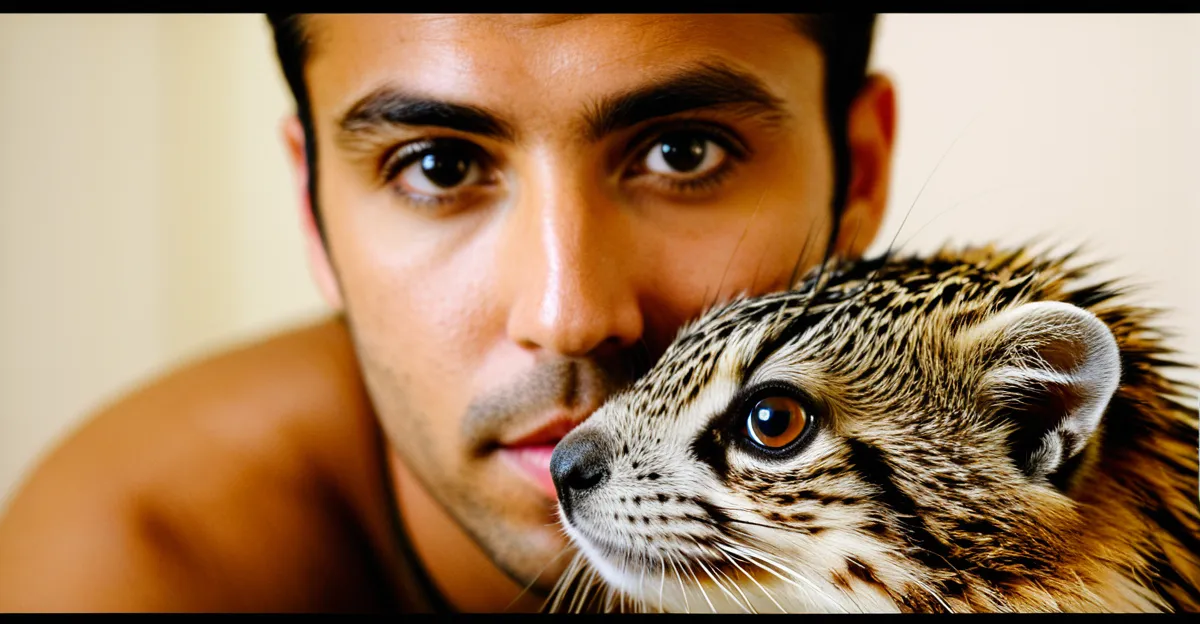Overview of UK Laws on Exotic Pet Ownership
In the UK, the ownership of exotic pets is governed by a complex legislative framework primarily aimed at safeguarding animal welfare and public safety. Key among these regulations is the Animal Welfare Act 2006, which outlines the fundamental obligations of owners to ensure the health and well-being of their exotic pets. This Act mandates that pet owners provide an appropriate environment, diet, and care, thus playing a significant role in defining animal welfare regulations.
One of the central authorities overseeing these regulations is the Department for Environment, Food & Rural Affairs (DEFRA). DEFRA is responsible for implementing policies and enforcing compliance regarding the ownership and treatment of exotic pets. They also provide legal protections for exotic pets, ensuring that animals are kept in conditions that meet their physiological and behavioral needs.
Also read : Why Are Brits Opting for Unique Pet Species?
Furthermore, specific legal protections exist for certain animal categories under the Wildlife and Countryside Act 1981 and the Convention on International Trade in Endangered Species (CITES). These laws offer additional safeguards for endangered or rare species, establishing strict controls over the import and trade of these animals in the UK. Compliance with these regulations is crucial as they not only aim to protect exotic pets but also to preserve biodiversity and prevent illegal wildlife trade.
Responsibilities of Exotic Pet Owners
Exotic pet owners in the UK are subject to legal obligations and must adhere to specific animal welfare standards to ensure the well-being of their pets. Owners are required to provide proper housing, nutrition, and veterinary care that meet the unique needs of exotic species. A thorough understanding of these legal obligations is crucial, as failure to comply can result in serious consequences.
Also to discover : What Are the Most Unusual Pet Law Regulations in the UK?
Pet owners must conduct regular assessments to ensure their housing conditions meet safety and health requirements. This includes sufficient space, appropriate climate control, and enrichment activities tailored to their pet’s species. These standards are vital components of the animal welfare regulations in the UK and play a pivotal role in safeguarding the animals.
Non-compliance with these regulations can lead to penalties, including hefty fines, confiscation of the pet, or even legal prosecution. It is essential for exotic pet owners to stay informed and adhere to these regulations to avoid such outcomes and contribute to the animal’s health and happiness. Additionally, accessing resources and support from relevant animal welfare organizations can provide guidance and ensure adherence to these standards.
Permits and Licensing Requirements
In the UK, owning an exotic pet requires stringent adherence to exotic pet permits and licensing requirements, ensuring both the owner’s responsibilities and animal welfare regulations are unequivocally met. Various categories of exotic animals require different permits, reflecting their potential impact on public safety and the environment.
Types of Permits
- Dangerous Wild Animals License: Required for species deemed dangerous, ensuring they are kept securely.
- Pet Shop License: Necessary if breeding or selling exotic animals, ensuring compliance with welfare standards.
The process for obtaining these permits is thorough. Prospective owners must demonstrate appropriate housing, care facilities, and knowledge of their exotic pet’s needs. Local authorities conduct inspections to ensure compliance with legal obligations before issuing a license.
Importance of Compliance
Compliance with these licensing requirements is paramount. Operating without the necessary permits can lead to severe penalties, including fines, confiscation of animals, or legal action. Compliance not only aligns with UK exotic pet laws but also fosters a safe environment for both the public and the animal.
Staying informed and adhering to these requirements reflects a commitment to upholding legal protections for exotic pets and contributes significantly to animal welfare standards in the UK.
Protection of Exotic Animals under the Law
The UK has implemented a robust framework to ensure the protection of exotic animals, balancing animal welfare and legal rights. The primary legislation includes the Wildlife and Countryside Act 1981, which complements the Animal Welfare Act 2006 by focusing on endangered species. This Act plays a crucial role in providing welfare protections for animals at risk of mistreatment or exploitation, aiming to preserve both local and global biodiversity.
Specific Protections for Endangered Species
Endangered species receive heightened focus under various animal protection laws. The Convention on International Trade in Endangered Species (CITES) is key in regulating the trade of exotic animals, such as reptiles or rare birds, ensuring it doesn’t threaten their survival. These protections not only prevent the extinction of species but also maintain ecological balance.
Legal Recourse Against Cruelty
Owners and advocates concerned about potential animal cruelty have legal recourse through established laws that prosecute offenders and mandate care standards. Complainants can approach local authorities or animal welfare organizations, which are empowered to conduct investigations and impose penalties. This ensures that exotic animals benefit from stringent welfare protections, reinforcing the UK’s commitment to their humane treatment.
Current Case Studies and Precedents
In recent years, several notable legal cases have shaped the landscape of exotic pet ownership in the UK, offering valuable insights for current and future owners. These cases highlight the intricacies involved in balancing animal welfare regulations with the rights and responsibilities of owners. One pivotal case involved a legal dispute over an individual’s right to own a dangerous wild animal, emphasizing the critical nature of obtaining the correct exotic pet permits.
Lessons Learned from Legal Disputes
From these legal case studies, it becomes clear that the failure to comply with licensing requirements can lead to significant legal challenges. Disputes often arise from misunderstandings of legal obligations, highlighting the importance of thorough knowledge prior to acquiring an exotic pet. Owners have learned that ignorance of the law is not a defense; comprehensive understanding and adherence to animal protection laws are paramount.
Impacts of Court Rulings
Court rulings have long-lasting effects on UK exotic pet laws. A landmark judgment involving the improper housing of an endangered species resulted in stricter scrutiny of housing conditions and evolution in welfare protections. These rulings not only reinforce the importance of safeguarding exotic animals but also set binding precedents for future cases, ensuring that legal protections for exotic pets continue to evolve appropriately. This demonstrates a solution-oriented approach in the legal framework, emphasizing practical benefits and fostering trust in the protection accorded to exotic animals.
Resources for Exotic Pet Owners
Navigating the complexities of UK exotic pet laws and animal welfare regulations can be daunting for pet owners. Fortunately, there are numerous exotic pet resources available to assist in understanding the legal protections for exotic pets.
1. Legal Guides and Educational Materials
For a comprehensive understanding of legal obligations, potential and current exotic pet owners can turn to various guides and workshops. These resources provide insights into animal welfare standards, offering clarity on maintaining proper care for different species. They often cover topics such as housing, nutrition, and health care requirements tailored to specific exotic animals.
2. Support from Animal Welfare Organizations
Connecting with animal welfare organizations is crucial for staying informed and compliant. Organizations such as the RSPCA and the British Veterinary Association offer expertise and guidance specific to exotic pet ownership. They provide educational seminars, resources, and even advocacy, fostering a supportive network for pet owners striving to meet regulatory demands.
3. Contact Information and Assistance
For practical assistance, exotic pet owners can contact local DEFRA offices. DEFRA not only enforces animal welfare regulations but also offers information and assistance on obtaining necessary permits and complying with legal protections for exotic pets. They serve as an authoritative resource, ensuring that legal compliance is achievable and maintained.
By leveraging these exotic pet resources, owners can effectively meet the stringent requirements set forth by legislation, thus ensuring the health and happiness of their pets.


